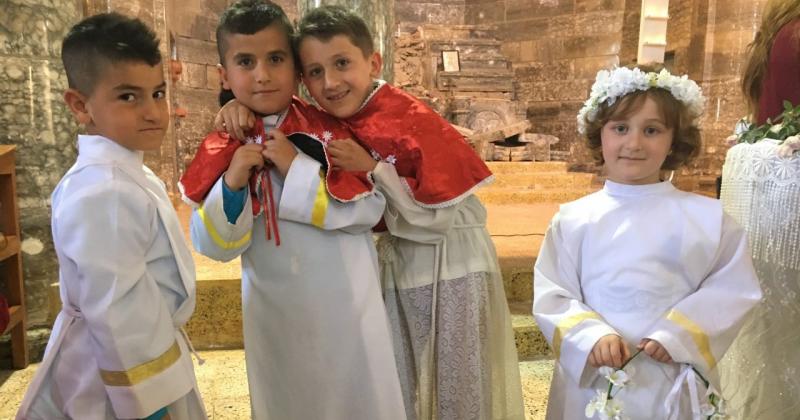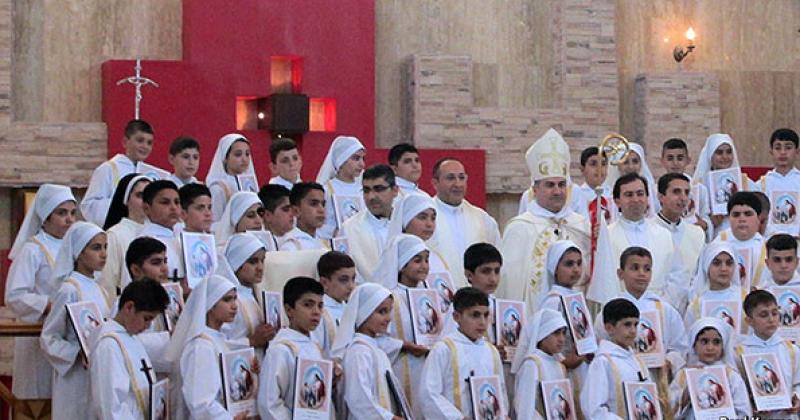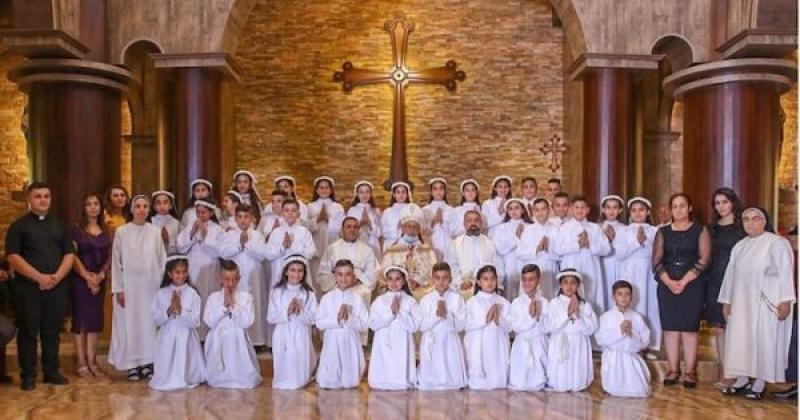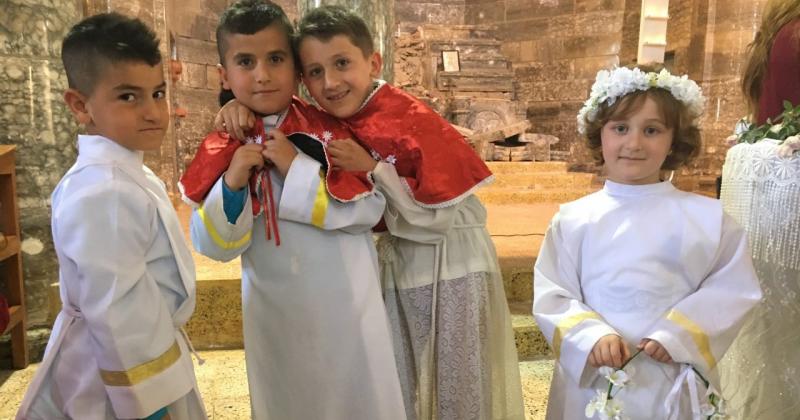At the opening of the annual Synod of the Chaldean Church taking place in Baghdad from 21-27 August, 2022 His Beatitude Cardinal Louis Raphaël Sako, patriarch of Babylon of the Chaldeans, set the alarm bells ringing and decried the prevailing situation of the Christian Iraqis, warning of the risk of Christians disappearing from Iraq as they continue to face hardships and discrimination.
The future of Christian Iraqis has repeatedly been the focus of attention of Cardinal Sako as he closely watches the dire situation they are going through and the daily hardships they are currently experiencing which force them to leave their native country while looking for a decent life in the farthest parts of the world that secure a good future for them and their children.
The pressing question that arises is, "why can't the widespread Iraqi territory accommodate the indigenous component of Iraq, namely the Christian Iraqis, by giving them their rightful rights, as well as by ensuring them equality and a promising future for them and their children?
What is alarming is that Cardinal Sako also warned that Christians in Iraq and in the entire region are heading towards disappearance unless there is a "change" in the way of thinking in governmental, social and economic policies. He said, “Iraqi Christians, and perhaps also Christians of other nations, will soon disappear if there is no change in thinking and of the state system.”
So what is needed is "change" since without effecting a valid and viable change, a disaster will definitely befall the entire region leading to the absence of the Christian component that has over the past centuries enriched every aspect of social life.
On Tuesday, August 23, 2022 Iraqi President Barham Salih welcomed Cardinal Sako and a number of Chaldean bishops during which he asserted that "the Iraqi Christians are a genuine component of the Iraqi society, and that they have stood by their brethren of all sects to face challenges." He pointed out that "there are some issues and obstacles that they face in the country which must be addressed. He also stressed the need to ensure the real participation of Christian Iraqis in political, social and cultural life without discrimination, as well as the need to establish the principle of citizenship, justice and equal opportunities, so that Christians and other components may contribute to shaping the country's present and future." Actually such promises need to immediately be implemented on the ground otherwise they will be blown in the wind.
Warning that Christians are viewed as second-class citizens, Cardinal Sako had earlier reiterated the urgent need to change the present Constitution and law in order to “build a democratic system based on citizenship”, and not on religious and ethnic affiliations."
In an Arabic-language article posted on saint-adday.com, Cardinal Sako had exhaustively delved into the political map in Iraq, the reality of Christians, and the endeavors to view the future awaiting Iraqi citizens. He said, "since the fall of the former regime in April 2003, Iraq has not experienced a normal political life as successive governments have failed to achieve what the citizens aspired to in terms of building peace and stability, restructuring the state, implementing important reforms, building true democracy, as well as achieving justice, equality, and prosperity for them. On the contrary, in light of political corruption and conflicting agendas, challenges have worsened, and crises have accumulated as the situation deteriorated further. The current political impasse is only a natural result of the sectarian and quota system that imposed its reality on society."
The Christian Iraqis have not forgotten the day, August 7, 2014 which marked their forcible displacement from Mosul and Nineveh Plain setting the stage for an unprecedented act and hard to imagine. This very event is indelible in the memories of the suffering people whose ramifications are felt on daily basis. The dire situation of Christian Iraqis can be healed by viewing the East as the vessel that encompasses pluralism as well as by continuous enhancement of the values of equality and citizenship.
In Pope Benedict XVI's apostolic exhortation that dates back to 2012, he says, "The Catholics of the Middle East, the majority of whom are native citizens of their countries, have the duty and right to participate fully in national life, working to build up their country. They should enjoy full citizenship and not be treated as second-class citizens or believers."
From this premise, it is of exigent importance to have immediate measures implemented that curtail the hemorrhage of Christians from the Middle East, particularly from Syria and Iraq, as reports indicate that if such a situation continues then the region will be bereft of its Christian component, which eliminates a key factor of diversity as well as inflicts serious and irreversible damage. The most important content of the Apostolic Exhortation is the assertion that The Middle East, without Christians or with a small number of them, is not the Middle East and that religious freedom, which is degree more advanced than tolerance, is the crown of all freedoms.
The Middle East Christians have been playing a key role that entrenches stability and enlightenment in the societies where they live as they have all the time played prominent roles in the fields of education, culture and arts, social affairs, politics, economics, humanitarian assistance and religious activities. The Christian schools and universities have always been widely acclaimed as the best and most desirable educational institutions.
It is of prime importance to take Cardinal Sako's warning seriously before it is late at a time when the world is busy by being embroiled in wars, violence, instability with famine and various social problems are in the offing.



